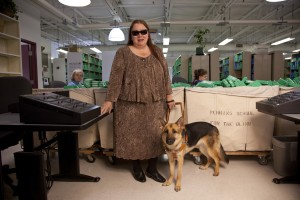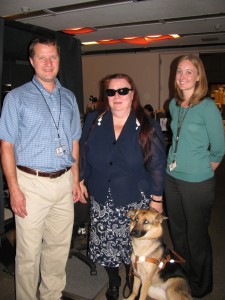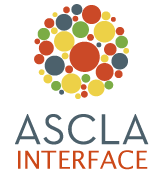Submitted by Kim Charlson, Perkins Braille & Talking Book Library
(Ed. Note: The Perkins Braille & Talking Book Library (PBTBL) is one of the winners of the 2012 ASCLA/KLAS/NOD Award. The award is sponsored by ASCLA, the National Organization on Disability, and Keystone Systems, and is given to a library organization that has provided services for people with disabilities. The award recognizes projects focused on the improvement of library services to people with disabilities, and demonstrated innovation in service delivery and utilization of emerging technology.)

The Digital Access Project is a collaborative activity of the Perkins Braille & Talking Book Library (BTBL) and the Boston Public Library (BPL). The other player in this project is the Internet Archive of San Francisco, California.
Through this joint initiative, patrons of the BTBL who have print disabilities can get quick access to print books available in the huge collection of the Boston Public Library within 24 hours. Access is provided through the digital scanning of the print text and the conversion of the file into a protected DAISY (Digital Audio Information System) file.
To understand the monumental impact of this project, a description of the process a print book requested by a patron of the Perkins BTBL takes is useful. Here is a description of the first book that went through the project – Threads: My Life Behind the Seams in the High-Stakes World of Fashion by Joseph Abboud.
Paul S. requested Threads, and the request was submitted via email to the Boston Public Library, Director of Digital Projects Tom Blake, for scanning. The BPL copy of the title was retrieved from the shelf and delivered to the scanning lab for processing within two hours of receipt of the request.
The Boston Public Library houses a six-person scanning lab affiliated with the Internet Archive in their main facility. The state-of-the-art scanning lab contains very sophisticated scanning equipment that is semi-automated to speed up the process. Six staff operate the scanners; they use a hand button to engage the cameras, as pages are turned using a foot pedal to lift the sheet of glass holding the pages down. The print book gets scanned page by page and the process is complete within one hour.

The scanned file then gets sent off to the Internet Archive to be copyright protected into a protected DAISY file that can only be accessed by eligible print disabled users of the NLS (National Library Service for the Blind & Physically Handicapped) program network using a special digital key. This key is used with authorized compatible digital players like the Victor Stream, The BookSense and the Bookport Plus to play the book utilizing the player’s built-in speech synthesizer.
Within hours, the Internet Archive sends a web link to the BPL, and it is forwarded back to Perkins indicating where the protected DAISY version of Threads can be downloaded. The book is downloaded by Perkins staff and the file is forwarded onto the patron having adaptive technology to place it onto their player. Generally, access is gained to the book within 24 hours!
Perkins has continued to test this process, and the latest exciting step has been that several books that were not in the BPL collection have been requested for professional work, education, and medical information purposes. The BPL has determined that the titles should be added to their collection. When the new titles arrive, they are sent off to the scanning lab for immediate processing. The quality of the scans is superior to many other e-text programs available in the U.S., and all testers have raved about the ease of use and the accuracy of the scans.
As the project rolls out to all patrons, more training will continue to be provided for each person getting a book scanned to meet their requests. Access to information is a huge barrier for people with disabilities which prevent them from reading conventional print. The Digital Access Project allows people to be fully integrated with their peers by having the same books their colleagues are reading available at the same time. The following statement submitted by the program’s first user, Paul Saner tells how it allowed Paul to be reading the same book at the same time as his peers.
“Most everyone on the Museum board I chair was talking about our new neighbor, Joseph Abboud. It sounded as though some of them knew him personally. Then I heard reference to a book, Threads, an autobiography of Mr. Abboud. I just had to read that book. I checked several sources of talking books to order Threads, but it had not been recorded. Then I recalled hearing about the Digital Access Project, a new service of the Perkins Braille & Talking Book Library in collaboration with the Boston Public Library. I asked the Perkins Library if this book might be scanned. Within 24 hours, a link to this book was sent to me in an email. It wasn’t long before I too felt that I knew Mr. Abboud. We share a passion for the Red Sox as did our deceased fathers who we both bonded with over baseball. This made me feel like I enjoyed the same access to information as my sighted board peers, and in actuality due to this innovative new project, I now do have amazing equivalent access.”
The most amazing part of this project is that it utilized existing resources to expand and make printed materials accessible without costing thousands of dollars. The investment in this program has been staff time of Charlson and Blake.
The Internet Archive scanning lab’s goal is to scan books for the Internet Archive website openlibrary.org, so they scan any titles that the BPL requests. As we grow the project, we have the systems in place to scan one book a day.
As we continue to work with Library patrons to make them more aware of the program, we will work up to greater capacity with this project.
Technology is truly the key for people with print disabilities unlocking the barrier of print access and making more and more exploration possible. This project is a true example of effective collaboration and strategic use of the push to digitize collections by the country’s libraries.
The Digital Access Project brings accessibility into the mix, and further reduces the massive delays that were previously expected to get a book in an accessible format. Now, through this project, patrons can have a very readable, and easy to navigate book in 24 hours – something that was not even thought possible previously. This type of information integration is pivotal to our fast-paced society where access to information is the key to the 21st century.
